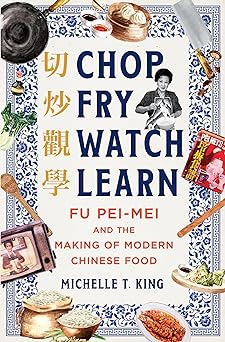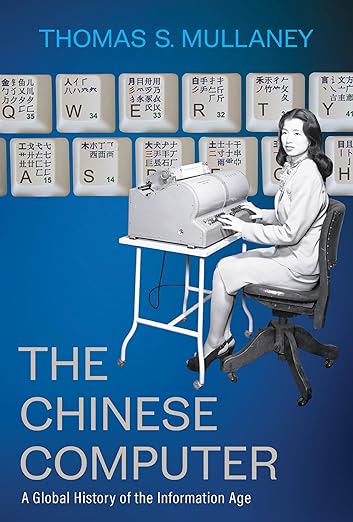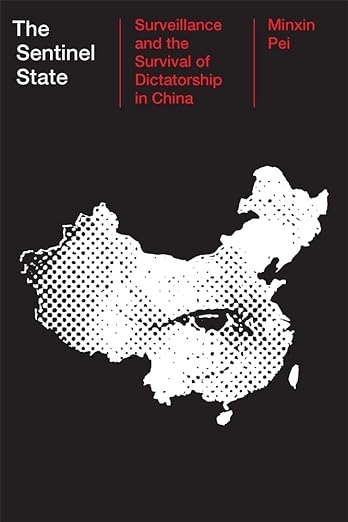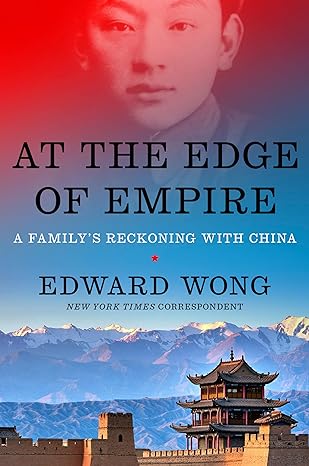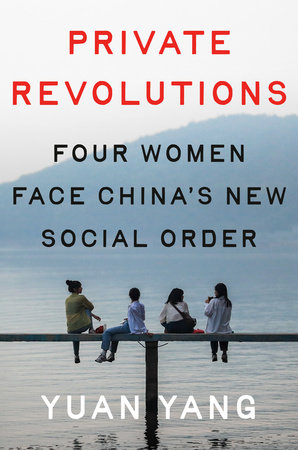Update: We have announced the winners (and honorable mentions) for the 2024 prize!
Back in January, we announced the launch of the new Baifang Schell Book Prize, administered by China Books Review, with two awards of $10,000 in nonfiction and translated literature categories. Over the last three months, two juries of five respected China scholars and writers (one jury for each award) have been busy reading — considering over 50 titles, published in 2024, that were either nominated by experts or submitted by publishers.
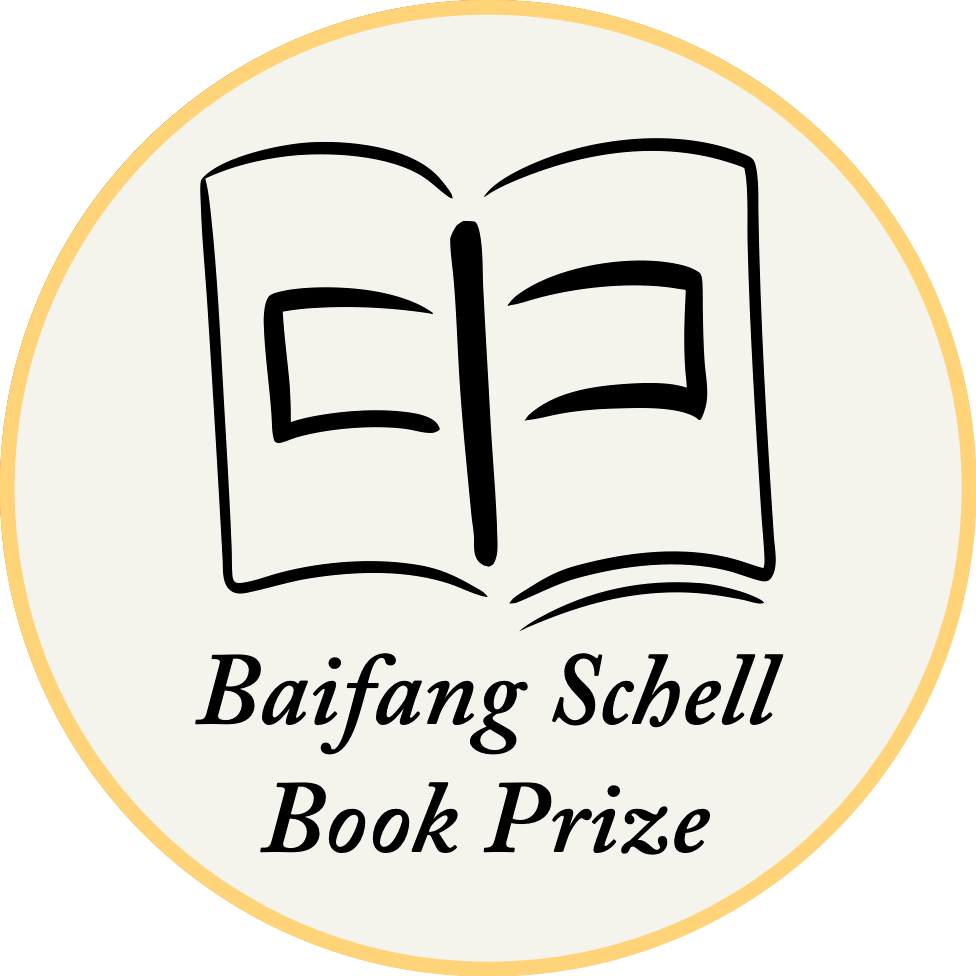
Now, we’re excited to announce the fruit of their bookworm burrowings: a shortlist of five titles, from which a winner (and honorable mention) will be announced in early May, with a prize ceremony to follow. The shortlist for the translated literature award will follow next week, but below we present the shortlist for the 2024 Award for Outstanding Nonfiction Book on China or the Sinophone World, selected by a fully independent jury: Andrew Nathan (chair), Yangyang Cheng, Barbara Demick, Isabel Hilton, Jeffrey Wasserstrom. The five books are listed alphabetically by author, and each blurb was written by a different jury member (but do not indicate any favorites).
Stay tuned to find out the winner next month — and if any of these books aren’t on your reading list already, here is an authoritative reason to add them.
Nonfiction Shortlist
Chop Fry Watch Learn
Fu Pei-mei and the Making of Modern Chinese Food
University of North Carolina historian Michelle T. King’s wonderfully engaging book Chop Fry Watch Learn focuses on celebrated television chef Fu Pei-mei, the closest counterpart Taiwan has ever had to Julia Child. This is King’s second book, her first being a careful scholarly study, Between Birth and Death (2014), that explored the history of infanticide in 19th-century China. This new title not only deals with a different topic but covers more ground geographically (northeast China and the U.S. as well as Taiwan), moves between genres (oral history, memoir, biography), and crucially for the prize criteria was created with the goal of enlightening not just specialists but also general readers. She accomplishes that goal with élan, and provides insight into everything from the history of gender in Taiwan to what cooking has meant to two generations of her own family.
— Jeffrey Wasserstrom
The Chinese Computer
A Global History of the Information Age
The Chinese Computer is a technology detective story, written with verve and subtle humor. Most people who write in Chinese characters today no longer use brushes or pens; they use QWERTY keyboards. Mullaney’s spirited narrative, filled with vivid personalities, explains how this is possible, through a more complicated version of autocomplete software that gives the writer a choice among Chinese-character equivalents of a spelled-out Mandarin term. This is a sequel to his equally fascinating book, The Chinese Typewriter (2018). The story reaches back to the late 19th century problem of how to send Chinese characters by telegraph, through to the near future when computers will instantly offer whole phrases in autocomplete. It is already faster to compose text in Chinese characters than in an alphabetic language — a startling reversal of the longstanding belief that the Chinese written language could not survive in the modern age.
— Andrew J. Nathan
The Sentinel State
Surveillance and the Survival of Dictatorship in China
How does a state like China’s see? This is the question at the heart of The Sentinel State. While much of the public attention on state surveillance has been trained on the role of new technologies, Minxin Pei cuts through the hype to focus on a more mundane yet pervasive technique: the use of people, from law enforcement professionals to casual informants. A professor of government at Claremont McKenna College, Pei was among the first cohort of Chinese students to study abroad after the Cultural Revolution, and has long been a keen observer of politics in his birth country. Rigorously researched and carefully argued, The Sentinel State traces the evolution of the Chinese state surveillance apparatus since the Mao years, examines its buildup post-Tiananmen, and compares the case in China with those in other autocracies. At a time when China is routinely exoticized in the West, and democratic freedoms are in peril globally, The Sentinel State is an urgent and important intervention.
— Yangyang Cheng
At the Edge of Empire
A Family’s Reckoning with China
A family memoir and a reporter’s story, brilliantly combined in one compelling volume. Edward Wong served as The New York Times Beijing bureau chief, and brings a keen reporter’s eye as well as an appreciation of Chinese history, as it affected the lives of his family. His father’s story encompasses the Wong family’s early migration to Hong Kong, a return to China as a patriotic volunteer for the war in Korea, then long years of political discrimination. His uncle migrated to the U.S., a decision that meant his father, the soldier, was assigned to the army in distant Xinjiang, before he eventually emigrated to the U.S. Wong’s account is enlivened and informed by Wong’s father’s lived experience of the suspicion that empires can have about territories far from the center of power. As Wong puts it, his father had gone to the edge of empire for the Party, but still they didn’t trust him.
— Isabel Hilton
Private Revolutions
Four Women Face China’s New Social Order
Private Revolutions tells the story of contemporary China through intimate and up-to-the moment portraits of four Chinese women. It is a considerable achievement that Yuan Yang managed to report these stories through Xi Jinping’s rise to power in 2013 and the Covid pandemic — an exceptionally challenging period in China for journalists, and of course for the protagonists of this book. After clawing their way out the countryside, they crash into the reality of Chinese inequality. A thriving education company falls victim to the crackdown on private education; a labor activist goes into hiding as her friends disappear. Yuan Yang writes with grace and empathy in this compelling account of what we might call the age of thwarted ambition. The book stands as a sobering antidote to the rags-to-riches stories that China once produced in such abundance. The much-vaunted Chinese dream may not be dead, but it is so much more elusive to achieve.
— Barbara Demick
The shortlist for the Award for Outstanding Translated Literature from Chinese Language will be announced on April 15. Subscribe to our free newsletter to be notified of that, as well as the forthcoming announcement of the winners and honorable mentions in May. ∎


